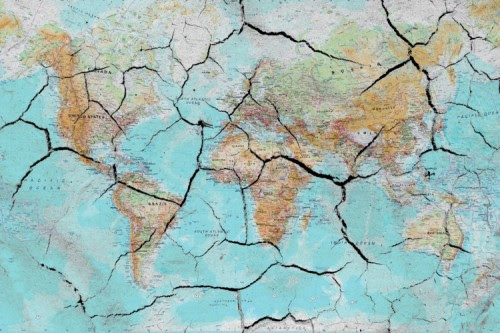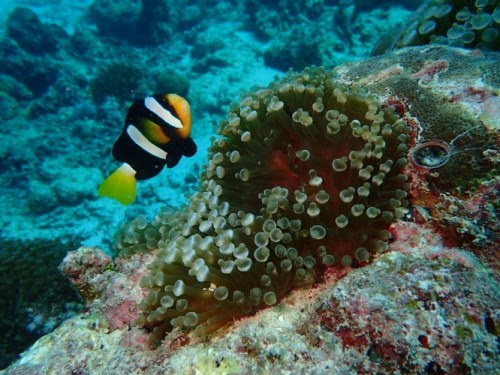Climate change is the topic of our time and travelling is often the focus of attention. In recent years, many people around the world have, for the first time, felt personally affected by climate change. Studies confirm that some of the effects of climate change include increasing the instances of extreme weather conditions such as heat waves and droughts. We have asked our partner hotels around the world what changes they are experiencing in their region.

Endangered coral reefs on the Maldives
Small islands such as the Maldives are particularly susceptible to the damaging effects of climate change: rising sea levels and damage to coral reefs, which actually protect the atolls, pose serious threats. “The impact of climate change is particularly evident in our house reef, whose situation has deteriorated further due to the effects of El Niño,” says Smrutica, Marine Biologist at Reethi Faru Resort. “Coral bleaching now affects more than half of all of the corals. Every summer, as temperatures continue to rise, we are confronted with the effects on coral reefs. You can see how the rising water temperature causes them to die off: the normally brown-coloured, living corals gradually become lighter and eventually turn completely white.”
More and more guests are asking about the effects of climate change on the resort and the marine ecosystem, Smrutica adds: “I am very often asked about climate change and sustainability, especially since the last coral bleaching. For the most part, these questions come from guests who are already aware of the problem, but sometimes guests who see dead corals for the first time while diving ask what has happened.”

‘Friajes’ the Peruvian rainforest
In Peru, the weather continues to become warmer and warmer. Especially at the coast with its partly desert-like, partly tropical climate, the transition between summer and autumn beings to blur. However, the most noticeable changes are in the rainforest region around the Amazon: “During the dry season between April and November there were only two to three ‘friajes’, now they come almost every month”, Claire Andre from Inkaterra tells us. The ‘friajes’ are cold fronts with rain and strong winds, which bring temperatures of about 12-20°C from Patagonia and usually stay for three days.

From natural irrigation to air conditioning and shadowing
At the Mawell Resort in Baden-Württemberg, the longer dry periods in summer are particularly noticeable. Due to this, there is a much less water available in their own well, which is also used for irrigating the natural pond on the property. There are also numerous effects in the surrounding region: germination and blossoming phases begin earlier due to the warm winters, but are then interrupted by frost, which leads to the loss of yield for the surrounding winegrowers and farmers.
Temperatures also have a direct effect on hotel operations: “Even with today’s best building practices, insulation and the like, these measures are no longer enough to prevent buildings from heating up. However, due to climate change and the associated higher temperatures, the guests expect an air-conditioned hotel room – climate change or not,” explains Julia Schneider from Mawell Resort. “Future investments must therefore not only be made in the air-conditioning of existing buildings, but also in providing additional shading options.”

Shared commitment
This year the Thai island of Phuket experienced one of the worst droughts of all time, so much so that joint efforts are becoming increasingly urgent from the Keemala’s point of view. “What many of us have learned from this experience is that we can no longer be satisfied with what we have already done in terms of sustainability. We need to do much more to reduce consumption and protect resources, whether through new service standards or innovative programmes,” says Samornpun Somnam (Tarn), Executive Director of Keemala.
From the very beginning, the Keemala has paid close attention to minimising plastic waste, using paper straws and being committed to forest conservation and the use of sustainable materials during construction. However, this dedication should be intensified in the future: “We want to move towards a ‘zero waste’ approach. We have expanded our organic garden and have integrated it into our guests’ experiences. We offer Zero Waste Meetings and Retreats and eliminate plastic waste directly at the source by working with suppliers who also adhere to our principles. In addition, we only use natural and regional materials for decoration to further reduce the carbon footprint,” Tarn said.

